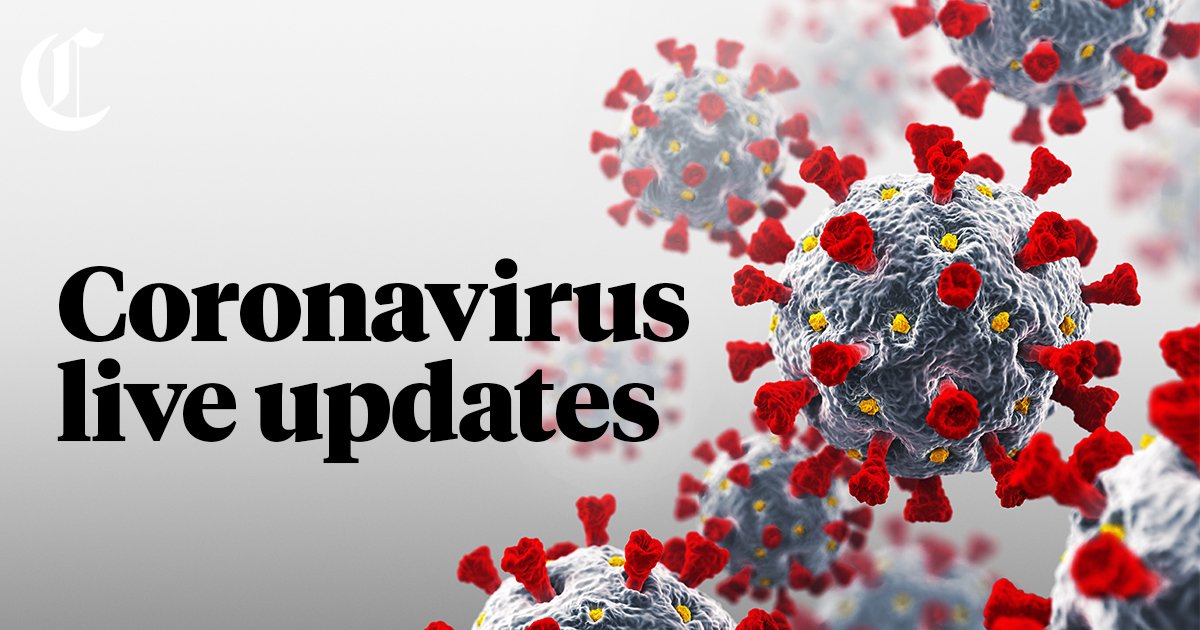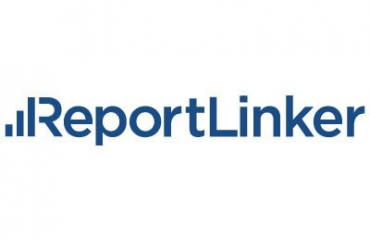Omicron in California: Latest news and updates – San Francisco Chronicle
Nurse Grace Acebo swabs Fabian Urruticochea ,13, in a coronavirus test at UCSF Laurel Heights in San Francisco.
Bay Area health officials are increasingly talking about the pandemic’s denoument, and a lot of that revolves around just what the “endemic” phase will look like. It’s been two years since a Santa Clara woman became the first person in the U.S. known to have died from COVID-19. After taking an enormous hit during the pandemic, Muni is wrestling its way back to improved ridership, but it’s still an uphill ride and some lines are doing a lot better than others.
Latest updates:
Bay Area deaths double in two weeks: The number of daily COVID deaths reported in the Bay Area has doubled from two weeks ago but appears to be leveling off in recent days. At the same time, cases and hospitalizations of patients with COVID continue to plunge from the height of the omicron surge. Coronavirus fatalities in the region have ticked up since Jan. 24, from 11 per day to 22 per day as of Monday, according to state data on seven-day averages of new daily deaths. Read the details here.
California’s indoor mask mandate on the way out: California’s statewide mask mandate, which requires everyone to wear face coverings indoors regardless of vaccination status, will be lifted Feb. 16, health officials confirmed Monday, noting that cases have dropped dramatically from the peak of the omicron surge. Read the full story here.
California’s positive-test rate dips below 10% for first time since Christmas: The state’s rate of coronavirus tests coming back positive dropped to 9.5% as of Monday — the first time since Christmas Day the rate has been below 10%, according to state data — as the omicron surge continues its decline. At the height of the omicron wave around Jan. 9, the test positivity rate was nearly 23%. The figures are seven-day averages.
San Francisco delays non-essential worker return: City staff who can work remote won’t be back in the office until at least March 7, rather than February 14 as the omicron variant, though dropping in case numbers, remains a threat. Around a third of 35,000 workers are affected, with essential workers already in person.
Israel, Japan, and Cuba join CDC list of countries to avoid: The U.S. Centers for Disease Control and Prevention’s list of travel destinations considered to be a “very high” COVID-19 risk for travel risk grew to include about 135 countries on Monday, with the addition of Armenia, Cuba, the Democratic Republic of the Congo, Israel, Japan, Libya, and Oman. To reach the highest risk category — or Level 4 — on the agency’s list, a destination must report more than 500 cases per 100,000 residents in the past 28 days. In early January, there were nearly 80 countries to “avoid” on the list.
COVID cases among U.S. children remain “extremely high”: There were 631,822 child COVID-19 cases reported in the United States from Jan. 27 to Thursday, with children representing a quarter of all reported cases nationwide, according to data Monday from the American Academy of Pediatrics and the Children’s Hospital Association. While the tally is down from the 808,013 cases reported in the previous week, the organizations said in a statement that the rate remains “extremely high.” The cumulated number of child COVID-19 cases since the beginning of the pandemic has increased by 13.6% over the past two weeks.
CDC considers longer time between vaccine doses, eight weeks: A longer interval between doses of two-shot coronavirus vaccines is under consideration by the Centers for Disease Control and Prevention. The CDC is looking at recommending eight weeks between the first and second doses of the Pfizer and Moderna shots. The CDC’s Dr. Sara Oliver told a recent meeting of the Advisory Committee on Immunization Practices that the longer interval may lower the risk of heart inflammation, an extremely rare side effect of mRNA shots, and increase overall vaccine efficacy. The agency currently recommends spacing out the first two shots of Pfizer’s vaccine for three weeks and Moderna’s for four weeks. Booster uptake in the highly-vaccinated Bay Area has lagged significantly behind rates of vaccination with the initial single – or two-dose series of coronavirus vaccine.
High rates of COVID infections among white-tailed deer cause for concern: Scientists have discovered unusually high rates of coronavirus infections among the estimated 25 million white-tailed deer in the United States, and are expressing concern that it could alter the course of the pandemic. In a paper scheduled to be published Tuesday by the Proceedings of the National Academy of Sciences, researchers found that about 40% of the deer population has been infected via human-to-deer transmission events followed by subsequent deer-to-deer transmission. Now there is concern that the virus can mutate in deers and reinfect humans. “The discovery of sylvatic and enzootic transmission in a substantial fraction of free-living deer has important implications for the natural ecology and long-term persistence of SARS-CoV-2, including through spillover to other free-living or captive animals and potential for spillback to humans,” the authors write.
California tops 80,000 COVID deaths: There were at least 80,019 confirmed fatalities linked to the coronavirus in California as of Monday morning, according to health department data analyzed by The Chronicle. The state has now surpassed 8.5 million cases of COVID-19 since the pandemic began — likely an undercount given the widespread use of home testing kits. National forecasts predict up to 3,000 more Californians will die from the virus by the end of February, even as the state comes out of the worst of the omicron winter surge.
Infected Bay Area skater drops out of Olympic event: U.S. figure skater Vincent Zhou of Palo Alto, who tested positive for the coronavirus a day after struggling through a poor free skate for the eventual team silver medalists, will not not compete in the men’s singles competition that begins Tuesday. The skater made the announcement Monday night in a teary video posted to his Instagram account. “Unfortunately I will have to withdraw from the individual event starting tomorrow,” he said, recounting the emotional frustration of doing everything he was supposed to in order to prevent infection and then testing positive nonetheless.
New Jersey drops school mask mandate: Gov. Philip Murphy says students and school employees will no longer have to wear face masks in the state that has imposed some of the nation’s most stringent pandemic mandates. Murphy said on Sunday that he would officially announce the elimination of the mandate on Monday afternoon, and it would take effect the second week of March, two years after New York and New Jersey became early epicenters of the deadly new coronavirus, the New York Times reports.
CDC adds wastewater data to COVID tracking toolkit: The Centers for Disease Control and Prevention added a new publicly available monitor to its COVID-19 tracking toolkit on Friday that measures the amount of the novel coronavirus present in wastewater. Measuring the amount of the virus present in wastewater samples has emerged as a way to track how its spreading through communities, including in the Bay Area.
One home, 1,200 potential buyers — the Bay Area’s daunting real estate math after COVID: Frustrated house hunters aren’t imagining it; there really is just one home for sale for every 1,206 South Bay households earning $100,000 to $125,000 a year. Read the full story.
What does the “endemic” phase look like?: With increasing focus on what will happen once the coronavirus enters the so-called endemic phase, the real question is whether that will also mean the end of the pandemic. It’s possible the Bay Area could settle into an endemic stage once the omicron surge is over. The virus’ chaotic peaks and valleys of infection and concerns that hospitals would be overwhelmed by the Bay Area’s widespread vaccination and, presumably, plenty of access to testing and treatments. Read the full story.
Going to the Super Bowl? Vaccinate, test, mask rules rule: Masks will be required for fans at the Super Bowl in Inglewood, Los Angeles County authorities are emphasizing. Guests at the Feb. 13 game will also need to show proof they’ve been vaccinated or recently tested negative for the coronavirus prior to entry.
Two years since 1st known U.S. victim died of COVID: Sunday marked two years since the death of Patricia Dowd, a Santa Clara County woman who was the first person in the U.S. known to have died from COVID-19. She was 57, and her family said she’d had no symptoms. Read The Chronicle’s account of what happened.
Religious exemption letters for sale: Something of a cottage industry in vaccination exemption letters is enabling California employees to purchase attestations about why their beliefs justify a waiver from coronavirus vaccine mandates, the Los Angeles Times reports. The letters provide an out for workers whose jobs require them to be vaccinated but allow exemptions for religious exemptions. The Times through public records requests amassed more than 2,200 pages of emails, letters and other records related to such waivers. The majority of the exemption requests, from four public employers, were copied from letters posted on websites of evangelical churches, conservative legal groups and fee-based organizations. Several included statements identical to those on the website of a Texas organization led by Sidney Powell, a conspiracy theorist and lawyer connected to former President Donald Trump.
Muni is changed a lot since pandemic started: Muni has recovered some of its ridership, but is still at about half of its 2019 pre-pandiemic levels and the growth has recently slowd, a Chronicle analysis shows. Not all lines and routes are recovering in the same way. Read where and why some lines are coming back strongest.
Olympic isolation complaints get attention: Olympic organizers say they’re addressing complaints about isolation conditions for athletes who test positive for the coronavirus and are working to ensure they have clean rooms, better food and access to training equipment and the internet. Officials said Sunday that organizers will work to ensure “everything is perfect” for athletes waiting to be released, and that athletes who test positive will now be able to order food from the Olympic Village and have it delivered to their isolation rooms.
Russia case numbers up tenfold in a month: Russia is reporting a record daily count of new coronavirus infections — a tenfold spike from a month ago as the highly contagious omicron variant spreads through the country. The 189,071 new infections reported by the state coronavirus task force on Sunday was about 2,800 cases more than the previous day and continued a surge that began in mid-January, when daily new cases were around 17,000.
Rita Beamish is a journalist at The San Francisco Chronicle.



